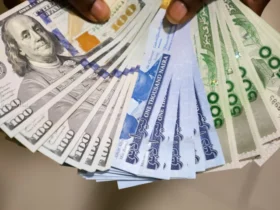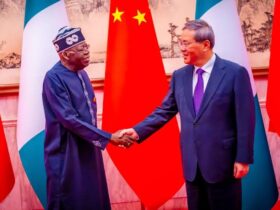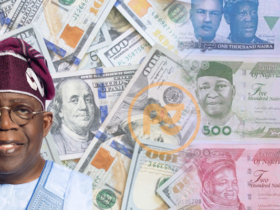
Nigeria’s currency, the naira, has taken a drastic turn, emerging as the globe’s worst-performing currency in the past month, as outlined in a recent Bloomberg report.
The report, released on Friday, spotlighted the mounting pressure on the Central Bank of Nigeria to persist in elevating interest rates.
The naira tumbled to 1,466.31 against the dollar, its weakest level since March 20, reflecting a decline attributed to a local shortage of US currency. Only $84 million was available on Thursday, marking a significant drop from the previous day’s supply.
Previously hailed by CBN chief, Yemi Cardoso, as the world’s best-performing currency in April 2024, the naira now faces considerable challenges. In March, it plummeted to as low as N1,600/$1 on the official market and N1800/$1 on the parallel market.
Cardoso attributed the earlier success to a series of reforms in the foreign exchange market and positive feedback from leading international investment institutions.
However, according to Razia Khan, Chief Economist for Africa and the Middle East at Standard Chartered, the upcoming maturity of $1.3 billion in naira futures by month-end may dampen market sentiment, potentially leading to increased demand for dollars.
Khan emphasized, “When the currency appreciated very fast, there had been a bout of profit-taking by offshore investors, and this meant that the dollar-naira exchange rate backed up again.”
The decline in the naira’s performance is expected to escalate pressure on the CBN to implement another rate hike after its forthcoming policy meeting on May 21. In February and March, the Central Bank raised rates by a total of 600 basis points, aiding the naira in rebounding from its March low.
Naira weakness extended to the unofficial market, where it slipped 0.9% to 1,468 naira a dollar on Friday due to heightened demand from individuals and small businesses, according to Abubakar Muhammed, chief executive of Forward Marketing Bureau de Change Ltd.
Furthermore, two other African nations rank among the four worst-performing currencies in the last month. The Zambian kwacha hit a record low, while Ghana’s cedi weakened to its lowest level since 2022. Both countries are currently undergoing debt restructuring processes.
READ ALSO: Peter Obi Condemns Recent Abduction of Kogi Students
Commenting on Ghana and Zambia’s situations, Ayodele Salami, chief investment officer for UK-based Emerging Markets Investment Management Ltd., stated, “Both countries are unlikely to attract fresh capital inflows until the ongoing debt restructuring negotiations are concluded.”
Salami also highlighted the pressure facing the naira and other African currencies due to increased domestic demand for dollars, particularly for importing raw materials and commodities like oil.









Let the naira plunge for as long as it can. Nigerians will be fine. It’s high time we run our economy and policies the way we want. BLOOMBERG, on behalf of the IMF, should stop poke-nosing in our economic affairs and STOP DOLLARISING OUR ECONOMY. The naira is for Nigerians and shouldn’t be used to compete with any other currency.